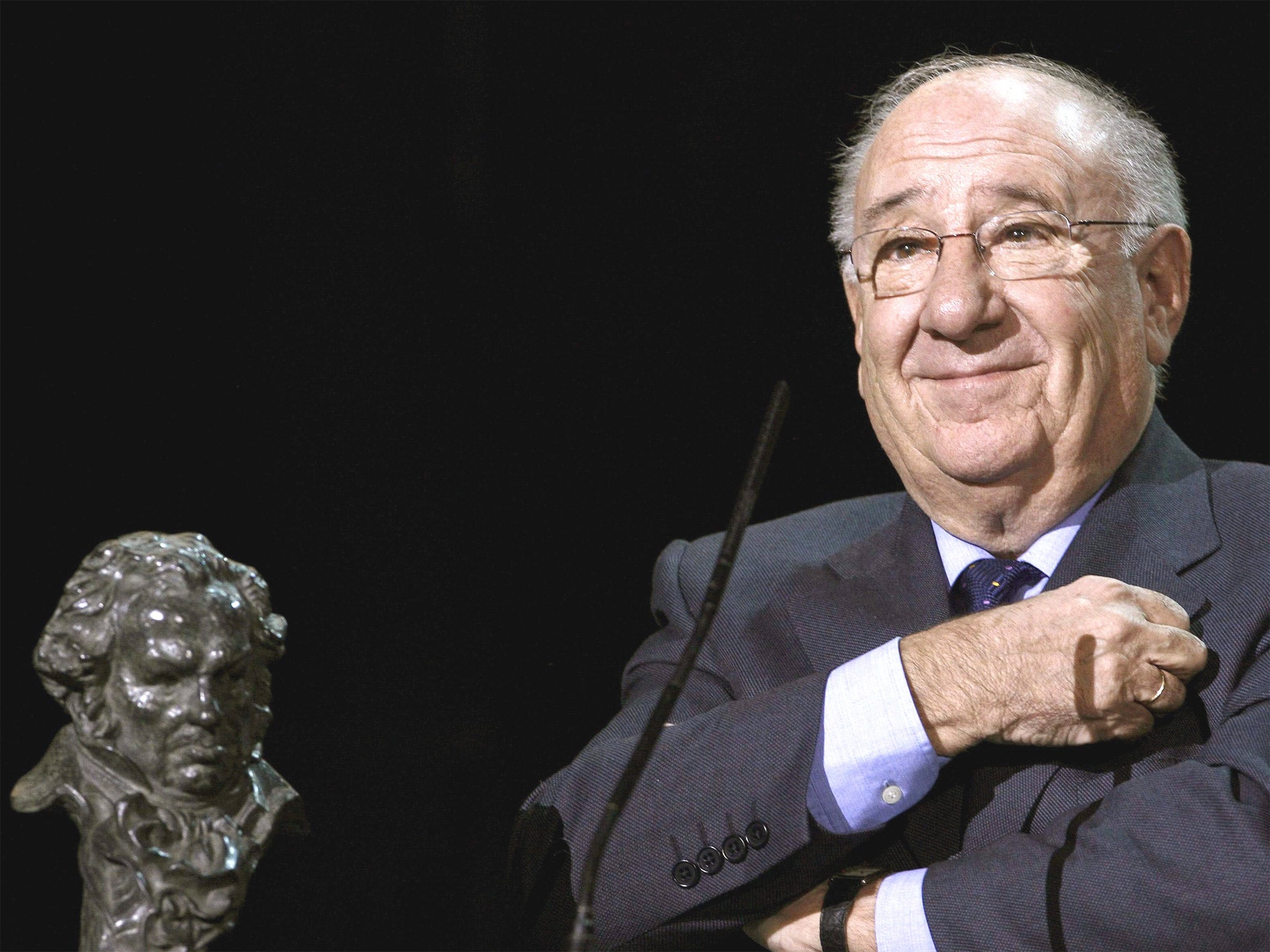Alfredo Landa: Actor who gave his name to a genre of Spanish film

Alfredo Landa was unique among Spanish actors to have lent his name to a national film genre. Landismo was the label coined to describe the Carry On style of hugely popular Spanish comedies of the early 1970s that made Landa a household name.
Unlike the Carry On series, however, Landismo was shot through with the sordid and contradictory politics of Spain's economic boom, closely linked to the country's new vocation as a major tourist destination for northern Europeans, who brought not only foreign currency but also sexual mores that clashed with Spanish Catholicism. Landismo was the comic correlation to the glaring disjunction between that economic progress and the traditional values of a Church that formed the ideological backbone of the Francoist dictatorship; such were the paradoxes that distinguished Spain in the 1960s and 1970s.
Landa was, however, much more than the buffoonish, repressed macho ibérico that he played in the more than 30 films of this period that gave rise to the sobriquet. In 1976 Juan Antonio Bardem cast him as the lead in El Puente, one of the key films of Spain's transition to democracy following Franco's death the previous year. This didactic parable of a factory worker who discovers the injustices and miseries at play in contemporary Spain during a bank holiday road trip – a peculiar combination of agitprop and the picaresque – heralded a new phase in Landa's career, one that would establish him as a major dramatic actor.
Born, he liked to say, at 3am on the third of the third, 1933, in Pamplona in northern Spain, he initially studied law in San Sebastian while acting in amateur productions before abandoning his studies and turning professional. While he made his cinematic debut in 1962 in José María Forqué's Atraco a las tres, like many of his contemporaries, Landa first established his reputation in the Madrid theatre. Indeed, there is a "type" actor in Spain marked by the experience of repertory theatre, which has provided Spanish cinema with a legacy of extraordinary actors whose comic ability is enhanced by a physique that the writer Manuel Vázquez Montalbán once wryly described, in the face of the absurdity of State officialdom, as restoring to the human condition "the role of a rational, albeit rather short animal."
Landa stands in the tradition of illustrious comic actors, like his forebears Pepe Isbert, Jose Luis Lopez Vazquez and Manuel Alexandre, whose physical ordinariness marked them out as the opposite of film stars. It is this comic legacy that Spain's best-known film-maker, Pedro Almodovar, has drawn deeply upon, first in his early work of the 1980s and again in his most recent film, Los Amantes Pasajeros (I'm So Excited).
Landa established close relationships with many of the most significant film-makers of the age, commencing with Luis Garcia Berlanga and Fernando Fernan Gomez, as well as with a key figure of the previous generation, Juan de Orduña. A memorable, albeit brief, appearance in Berlanga's masterpiece El Verdugo (1963) neatly encapsulates the essence of Landa's comedy. Playing an irascible and venal church deacon he fussily scolds altar boys for snacking on sacramental wafers and extinguishes the lights on the protagonist's wedding having correctly gauged the couple's financial limitations (in a sequence based, Berlanga always insisted, on his own wedding).
The following year Fernan Gomez gave him the lead in Ninette y un Señor de Murcia. In the latter part of his career he would establish a lengthy partnership with the director Jose Luis Garci, commencing with his portrayal of a private detective in El Crack and El Crack 2.
Joint winner (with his compatriot Francisco Rabal) of the Best Actor award at the 1984 Cannes Film Festival for his remarkable portrayal of Paco el Bajo, the submissive peasant resigned to his serf-like fate in Mario Camus' Los Santos Inocentes, Landa also won two Goyas (the Spanish Oscars) for Best Actor in 1987 for El Bosque Animado and in 1992 for La Marrana. In 2007 he was awarded the Goya of honour, having announced his retirement. In all he appeared in 120 films.
Although the connection between the cheap ribaldry of the Landismo films and Landa's astonishing dramatic performance in Los Santos Inocentes seems at first sight tenuous, both point to the contradictions between the modern and the atavistic whose tension has provided rich pickings for comedy but also draws attention to the enduring brutality of rural life that prevailed late into 20th-century Spain. Alfredo Landa was, in a sense, the personification of the country's national allegory and his death marks the end of an era.
Steven Marsh
Alfredo Landa Areta, actor: born Pamplona 3 March 1933; married Maite Imaz Aramendi (two daughters, one son); died Madrid 9 May 2013.
Join our commenting forum
Join thought-provoking conversations, follow other Independent readers and see their replies
Comments